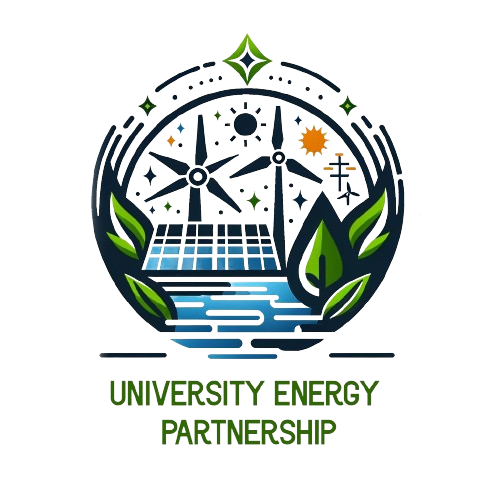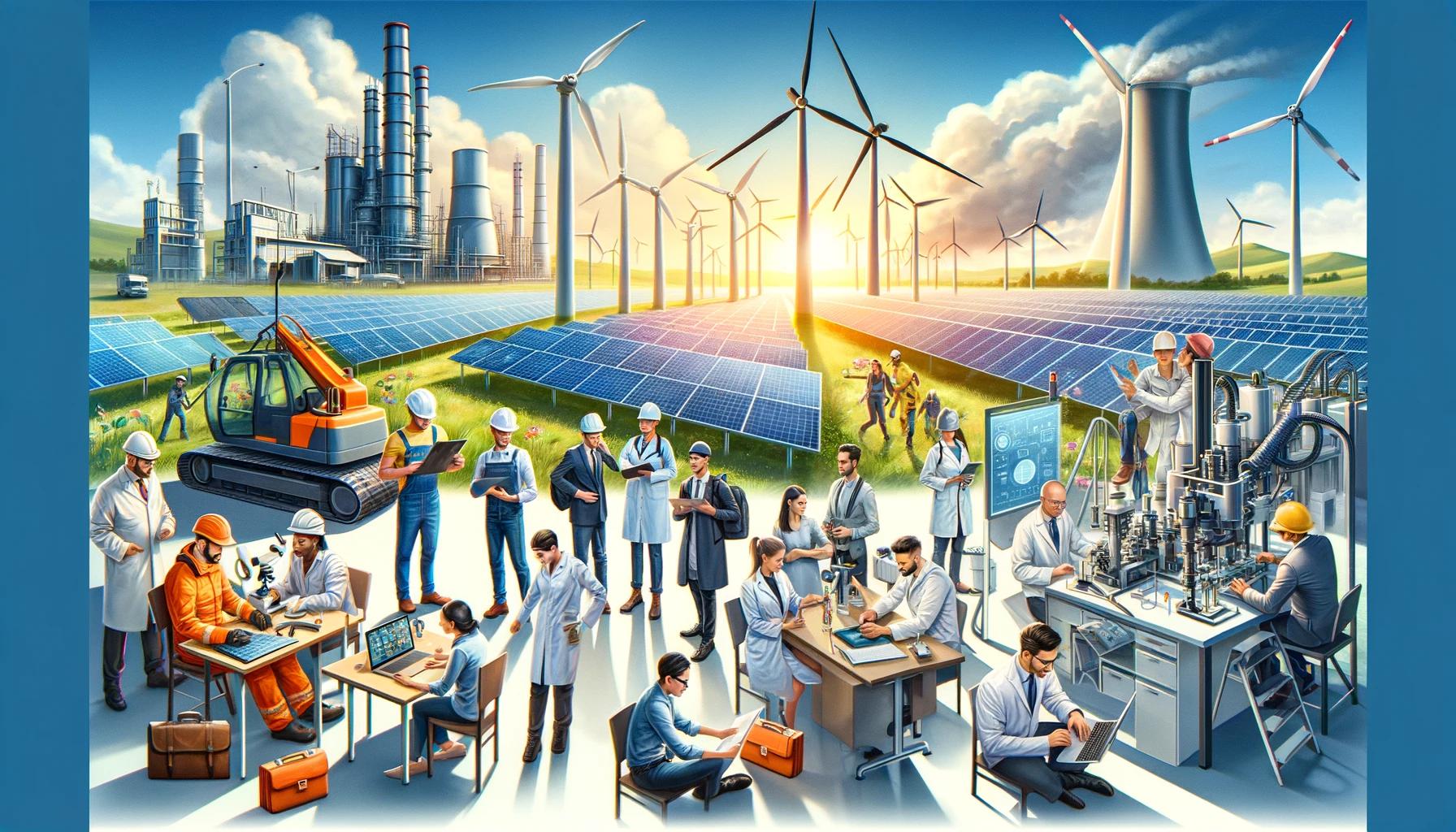Renewable energy has gained significant traction in recent years as the world grapples with climate change and seeks to reduce its reliance on fossil fuels. This transition to cleaner and more sustainable sources of energy has not only led to a greener planet but has also opened up a plethora of career opportunities in the renewable energy sector. In this article, we will explore the various career opportunities available in renewable energy, their importance in the context of global sustainability, and the skills and qualifications required to succeed in these roles.
The Growing Importance of Renewable Energy
Before delving into specific career opportunities, it is essential to understand why renewable energy is gaining prominence. Renewable energy sources, such as solar, wind, hydro, geothermal, and biomass, are considered “renewable” because they are naturally replenished and do not deplete over time. In contrast, fossil fuels like coal, oil, and natural gas are finite resources that contribute significantly to greenhouse gas emissions when burned for energy.
The urgency to combat climate change and reduce carbon emissions has prompted governments, businesses, and individuals to invest in renewable energy solutions. Transitioning to renewable energy sources reduces carbon footprints, provides energy security, creates jobs, and fosters economic growth.
Career Opportunities in Renewable Energy
The renewable energy sector offers a wide range of career opportunities across various domains. Let’s explore some of the most prominent ones:
1. Solar Energy
a. Solar Panel Installer
- Job Description: Solar panel installers are responsible for setting up solar photovoltaic systems on rooftops or other suitable locations. They assemble and install solar panels, connect electrical components, and ensure the systems operate efficiently.
- Skills Required: Basic electrical knowledge, hands-on skills, and safety training.
b. Solar Energy Consultant
- Job Description: Solar energy consultants advise individuals and organizations on the benefits and feasibility of solar energy solutions. They assess energy needs, provide cost estimates, and recommend suitable solar installations.
- Skills Required: Knowledge of solar technology, excellent communication skills, and the ability to analyze energy consumption patterns.
2. Wind Energy
a. Wind Turbine Technician
- Job Description: Wind turbine technicians are responsible for the maintenance, repair, and inspection of wind turbines. They ensure that the turbines operate at maximum efficiency.
- Skills Required: Mechanical and electrical knowledge, working at heights training, and problem-solving skills.
b. Wind Farm Developer
- Job Description: Wind farm developers oversee wind energy projects’ planning, design, and construction. They acquire land, obtain permits, secure financing, and manage project implementation.
- Skills Required: Project management skills, knowledge of regulatory requirements, and financial acumen.
3. Hydroelectric Energy
a. Hydroelectric Engineer
- Job Description: Hydroelectric engineers design, develop, and maintain hydroelectric power plants. They work on dam construction, turbine design, and water management.
- Skills Required: Engineering degree, knowledge of fluid mechanics, and hydroelectric technology.
4. Geothermal Energy
a. Geothermal Technician
- Job Description: Geothermal technicians assist in installing, maintaining, and repairing geothermal heating and cooling systems. They ensure the efficient use of the Earth’s heat.
- Skills Required: HVAC (Heating, Ventilation, and Air Conditioning) knowledge, problem-solving skills, and hands-on experience.
5. Biomass Energy
a. Biomass Plant Operator
- Job Description: Biomass plant operators manage facilities that convert organic materials (such as wood, crop residues, and waste) into energy. They oversee the production process and ensure safety and efficiency.
- Skills Required: Plant operations knowledge, environmental regulations understanding, and safety protocols.
Skills and Qualifications
To excel in the renewable energy sector, it is essential to possess certain skills and qualifications that are universally valued across various roles:
1. Educational Background
While many entry-level positions may not require a specific degree, having a relevant educational background can significantly enhance your prospects in the renewable energy sector. Degrees in engineering, environmental science, renewable energy, and sustainability are highly regarded. Additionally, specialized certifications and courses can be beneficial.
2. Technical Skills
Understanding the technical aspects of renewable energy technologies is crucial. Depending on your chosen career path, you may need skills in electrical engineering, mechanical engineering, computer programming, or other technical areas. Training and certifications in specific renewable energy technologies are also valuable.
3. Environmental Awareness
A strong commitment to environmental sustainability is fundamental in the renewable energy sector. Professionals in this field must understand the environmental impact of energy production and be dedicated to reducing carbon emissions.
4. Project Management
Project management skills are vital for careers involving the development and implementation of renewable energy projects. These skills include planning, budgeting, risk assessment, and effective communication.
5. Regulatory Knowledge
Understanding local and international regulations related to renewable energy is crucial. Many renewable energy projects require compliance with various environmental and safety standards.
6. Problem-Solving Abilities
Renewable energy professionals often encounter technical challenges and obstacles. Being able to analyze problems and devise effective solutions is a valuable skill.
Emerging Trends in Renewable Energy Careers
The renewable energy sector is constantly evolving, driven by technological advancements, changing consumer preferences, and global efforts to combat climate change. As a result, several emerging trends are reshaping the landscape of careers in renewable energy.
Energy Storage Technologies
One of the most significant trends in renewable energy is developing and adopting energy storage technologies. With the intermittent nature of renewable sources like solar and wind, effective energy storage solutions are crucial to ensure a consistent power supply. Careers in energy storage involve designing, managing, and optimizing battery systems, pumped hydro storage, and innovative storage solutions like thermal energy storage.
Grid Integration and Smart Grids
As renewable energy capacity increases, the integration of these intermittent sources into the existing electrical grids becomes paramount. Professionals in this field work on creating smart grids that can efficiently manage and distribute power from renewable sources, reducing waste and improving grid reliability. Opportunities range from grid engineers to data analysts specializing in grid management.
Electrification and Decentralization
The shift towards electrification and decentralized energy systems is another noteworthy trend. As electrification extends to sectors such as transportation and heating, careers in renewable energy expand beyond traditional power generation. Opportunities in electric vehicle charging infrastructure, heat pumps, and microgrids are on the rise.
Hydrogen and Green Fuels
Hydrogen and green fuels like synthetic methane are gaining attention as potential energy carriers and storage solutions. Careers in this area involve research, development, and implementation of hydrogen production, storage, and utilization technologies. These roles contribute to the creation of a carbon-neutral energy ecosystem.
Artificial Intelligence (AI) and Predictive Analytics
AI and machine learning are playing a growing role in optimizing renewable energy systems. Professionals skilled in AI and data analytics are in demand for creating predictive models, improving energy efficiency, and enhancing the overall performance of renewable energy installations.
As the renewable energy sector continues to innovate and expand, staying updated on these emerging trends can provide valuable insights for individuals seeking or advancing their careers in this dynamic and critical industry. Whether you’re interested in energy storage, grid integration, electrification, green fuels, or AI-driven solutions, there are abundant opportunities to contribute to a sustainable energy future.
Conclusion
The renewable energy sector offers diverse career opportunities, each playing a crucial role in advancing sustainable energy solutions and mitigating the effects of climate change. As the world continues its transition towards cleaner energy sources, the demand for skilled professionals in this field is expected to grow. Whether you are interested in solar, wind, hydro, geothermal, or biomass energy, there is a path for you to make a meaningful contribution to a more sustainable future. By acquiring the necessary skills and qualifications, you can embark on a fulfilling career in renewable energy and be a part of the solution to one of the greatest challenges of our time.

